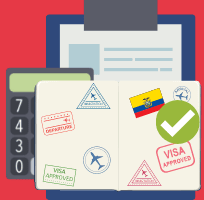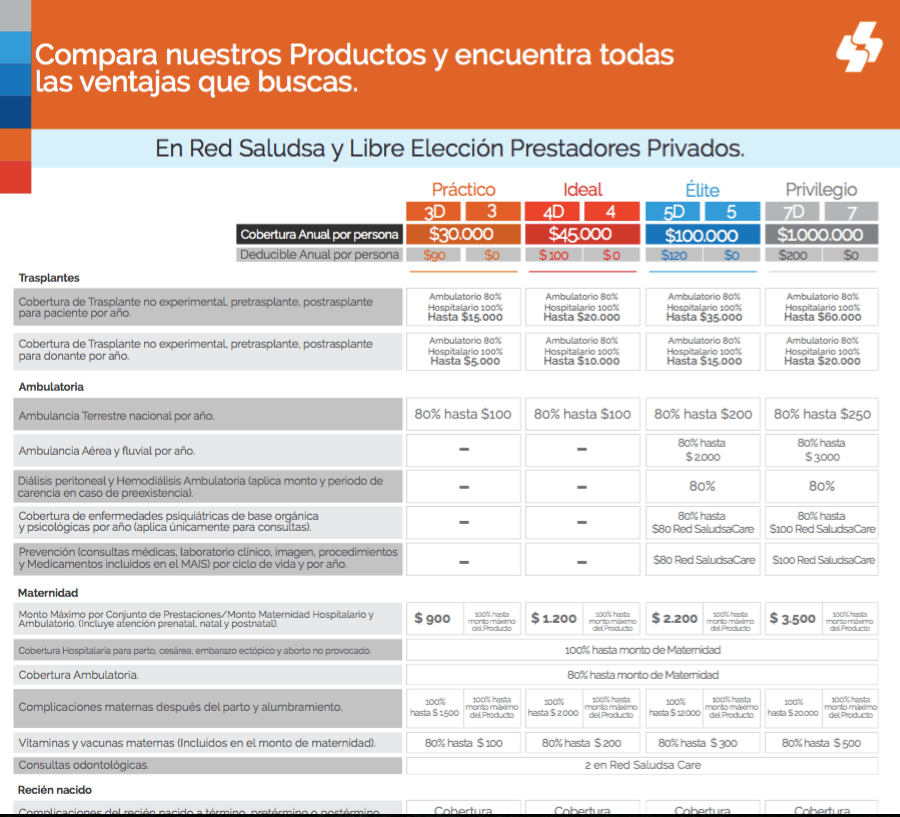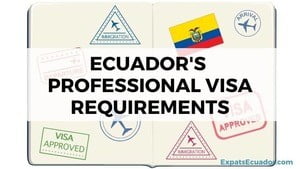We're getting to your messages. Thanks for your patience🙏
So, you’re thinking about moving to Cuenca, Ecuador? That’s great. But, there’s a lot to consider with such a big decision, so we’ve put together this lengthy guide to help decide if Cuenca really is the right choice for you.
CUENCA RELATED POSTS
Hint - before making a life defining decision like where you are going to live, you really should plan to visit first. It’s easy to get carried away with the excitement of living in a new place and tempting to just pack your bags and wing it. I should know, I’ve done this several times. But, this can be very risky and ultimately lead to you being unhappy in your new home and you may find yourself leaving bitter, in financial stress and generally unhappy with your life’s path.
Now that’s out of the way, let’s get to the nitty gritty of what expats like and dislike about Cuenca.
Ok, so clearly pulling together a list of likes and dislikes of any city is going to include some personal bias. This is unavoidable. However, I’ve taken care to gather a wide range of opinions from other expats to help offset this.
The cost of living in Cuenca can be much less than most western countries. The basic necessities of healthcare, rent, food, transport and schooling are likely to be significantly less than you are paying now.
The following categories are where I find the major differences between Cuenca/Ecuador and western countries.
This includes processed foods, electronics and cars. I was a little shocked at how much I was paying for some “basic” items when I first arrived in Ecuador. The import taxes on many items and general lack of competition in some verticals push up prices to the point where some expats rely on muling services to get their electronics and specialty items into Ecuador.
The cost of schooling in Cuenca varies considerably. But, you’d generally be looking between $200 - $500 per month. Be prepared to pay significantly more ($1,000+) if you want a foreign language school (such as the German School).
Schools in Cuenca are generally considerably LESS than Quito. Approx 50% less. We moved from Quito to Cuenca when my partner’s 2nd child started school. This was a primary consideration for us and we basically got a 2 for 1 deal by moving to Cuenca.
The fruits and vegetables from the various markets around town are super cheap, delicious and with a wide variety. They may not have exactly what you are used to (ie pumpkins), but if you’re willing to adapt, you may find yourself eating more fresh food than you did back home.
The price incentive to purchase cheap fresh food from the markets rather than processed, expensive foods from supermarkets (Supermaxi etc) can be a key driver for expats to lose weight. I know my diet consists of 25% more fresh food than it did before arriving.
Owning a car in Ecuador is a divisive topic. They are expensive to buy - roughly 1.5x to 2x what you’d pay in the US. But, they are cheap to maintain with cheap labor and super cheap gas prices (although this may change when the subsidy is removed).
Don’t try and import your car into Ecuador unless you are prepared to pay massive import duties and possess extreme patience to deal with the red tape.
In fact, I’d generally avoid trying to import anything unless you really know what you are doing or willing to pay someone that does.
Taxis in Cuenca are cheap, but still no Uber yet. I do suggest relying on taxis and buses to get around Cuenca when you first arrive. The minimum taxi fare is $1.50, with rides around town generally not costing more than $3-4. Buses are $0.25, but you will need to purchase a bus card first.
If you’re currently based in the US, you’ll find healthcare to be a fraction of the cost you’re currently paying. Private health insurance can be purchased with an insurer like Salud or Ecuasanitas for around $100/month. You can also buy into public health insurance scheme (IESS) for approx $70/month.
Some expats like to self insure for the small things such as doctor appointments as they are generally cheap ($40-$50), whilst purchasing public health insurance for any major emergencies.

Visas for Ecuador are relatively easy to obtain provided you use a facilitator. There are numerous facilitators in Cuenca - message me if you want recommendations.
This is a common question and it can be tempting to save some money by going down the DIY route. Facilitators for any of the 2 year visas generally cost $500-$1000 and in my experience are worth it.
But, you can certainly do it yourself if you have a good level of Spanish, are very patient and have planned ahead. Just keep in mind that the process is updated regularly and the government isn’t great at communicating these updates. Meaning you will likely need to visit the migration office several times during the process to find what you need.
You should be able to find the official list of requirements for Ecuador Visas - just make sure it’s up to date as there can be conflicting information online.
Cuenca is different to where you live. Accept and rejoice in this simple truth and you’ll adapt much quicker. Avoid the temptation to label and compare with your current home - ie ‘This thing about Cuenca is better/worse than where I used to live’. Replacing these value judgments with simple acceptance of differences helped me adjust to life in Ecuador.
You’re going to miss certain things from your previous home. This is natural. However, the quicker you can be grateful for the things you do have, the easier your transition will be.
I’m writing this whilst on holiday in Paraguay and I genuinely miss the Cuencanan culture. I’m currently pining for the variety of food, markets, architecture, indigenous and mountains. I can’t wait to be back in Cuenca.
With a population of 330,000, Cuenca is the 3rd biggest city in Ecuador after Guayaquil and Quito. I have a general preference for 2nd/3rd biggest cities over biggest because they are more accessible whilst having most of the amenities their bigger siblings have. Think Chiang Mai in Thailand or Danang in Vietnam.
Cuenca has an abundance of supermarkets, restaurants, parks & hospitals, but without the chaos of Quito or Guayaquil. Cuenca may still be a little too busy for you. If so, you should check out Loja or Vilcabamba approx 4 hours away.
The main thing I find myself craving are the big ticket entertainment options such as my favorite bands and sporting events. Football is very popular everywhere in Ecuador and Cuenca has an ok team in the national league, but I’ve found it difficult to get excited about. You may love it.
Obviously a topic subject to personal preferences, the weather in Cuenca can have a significant impact on your quality of life. Given Ecuador sits on the equator, the traditional 4 seasons don’t function the way you’d be used to. Every day is 12 hours of daylight followed by 12 hours of night. Rinse and repeat.
The two seasons are basically sunny or rainy. In particular, the 3-4 months from June - Sep are renowned for being rainy and cloudy. These are the months most expats have the biggest issue with as it can be cold at night and cloudy for weeks on end. This doesn’t bother me, especially as this period falls during school holidays and we take the opportunity to hang out at the beach (Salinas, Manta or even Peru) for some of this time.
There’s an abundance of hospitals and clinics in Cuenca. The quality of care is generally very good, with Cuenca’s healthcare having a reputation of top 3 in Ecuador.
The level of personal service will generally be much higher than you’re currently receiving, at a fraction of the price you’re currently paying.
I used to think that it was strange that my partner would message her various doctors for informal advice or follow up information. I’m not going to promise you that all doctors will do this (especially without cost), but it does go a long way to explain the level of personal care healthcare professionals are willing to provide in Cuenca. I couldn’t imagine messaging any doctors in Australia or the US and expecting a prompt, or indeed any, reply.
The three hospitals most commonly recommended by Cuenca expats are:
All three hospitals mentioned provide state of the art facilities. If you have a particular concern (ie history of heart issues), then I’d recommend visiting each hospital and enquiring about the specialist equipment and care you can expect to receive.
Your options for health insurance are private or public:
1. Private Insurance
Private insurance starts at around $70/month and will increase based on age, cover and pre-existing conditions. The biggest insurer in Ecuador is Salud SA, so I’ve included a snapshot of their plans below:

You can choose your level of cover (starting at $30,000) and whether you want a deductible. The non-deductible plans are more expensive and cover more procedures.
Other insurers worth checking out are:
Note, some health insurers may only work with certain hospitals or provide additional cover at preferred hospitals. Once you’ve got 2 or 3 different health insurance companies in mind, I recommend making sure they cover your preferred and/or closest hospitals.
For example, our family prefers the Hospital Universitario del Rio because it’s close and we like their facilities. So, we changed health insurance providers to explicitly cover us at this hospital.
2. Public Insurance (IESS)
Some expats choose to get public insurance through IESS for approx $50/month to safeguard against any expensive emergencies. You will need to wait 6 months until you’re fully covered.
Obviously you won’t have the same level of hospital choice and you may find this process a little more complicated than private insurance, but this may better suit your budget.
Even without insurance, consultation for doctors, dentists and other healthcare professionals is cheap at around $40 per visit.
This affordability for specialist care creates the option of paying out of pocket for specialist treatments and insuring with IESS to cover major emergencies.
One of the main reasons I settled down in Ecuador after 5+ years on the road was to satisfy a key human need I’d been missing; belonging to a community.
This is a common thread amongst long term travellers and it’s something that gradually sneaks up on you until one day you look around and don’t feel connected to your environment because you simply haven’t put in the effort (for whatever reason) over a period of time that is required to be part of the community.
This will most likely be where you start your journey as it will be the easiest to find and integrate into. There’s numerous different groups you can join including taking various classes such as art, exercise, yoga, horse riding classes or just catching up.
If you have a young family there are also different meetups focused on this such as the Expat Familie Cuenca FB group that meets up every Saturday at Parque de la Madre.
This has been a vital component for my happiness since moving to Ecuador. It’s a simple formula - the greater my ties to the local community, the greater my happiness.
Ecuadorians can be difficult to reach at first as they may not be as open or forthcoming as you’re used to. But, get beneath this first layer and you’ll find many Ecuadorians to be very genuine and caring.
There’s many expats in Cuenca that have not spent the time or effort to build a local community and they tell me they are still very happy.
Only you know what is important to you, but my suggestion is to at least consider if building a local community is currently important to you. If so, ask yourself whether you’re really willing to learn Spanish and put in the effort to know your neighbors and greater community. Remember, you’ll only get out what you put in..





Hello, my name is Jan Harr. I’ve heard a lot of great things about Cuenca. I’m planning to visit at the end of February/March 2023. Would love to speak with others who have moved to Cuenca, if possible.
I want to relocate to Cuenca. Could you please help me with more resources. Thank you!
Hi Tonya. Certainly - feel free to peruse our Cuenca based website, YapaTree.com. Lots of resources for moving to Cuenca. https://yapatree.com/